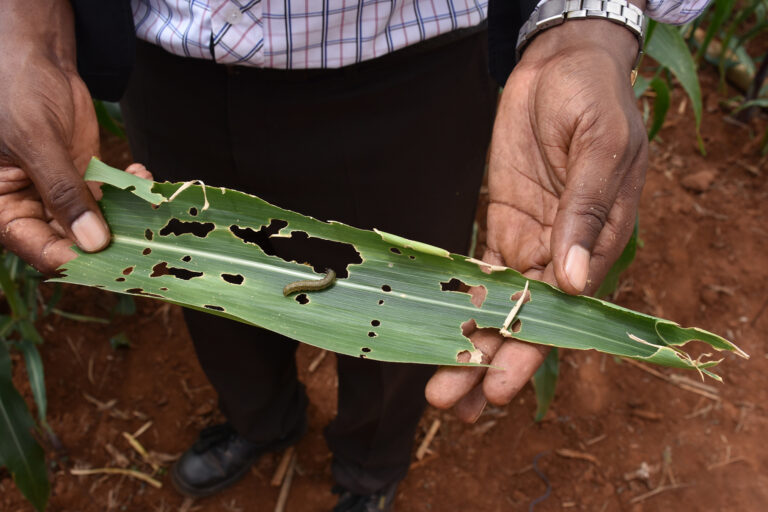Climate change, land use change and biodiversity loss are combining to drive an increase in agricultural pests and expansion of their ranges with concerning implications for future global food security. In a recent paper published in the journal Nature Reviews Earth & Environment, an international team led by researchers at China’s Hebei University assessed that 2° Celsius (3.6° Fahrenheit) warming over preindustrial levels could lead to increased pest damage and global crop yield losses of 46% for wheat, 19% for rice and 31% for maize. The complex causes for this pest population explosion: Temperature increases are enabling crop pests to move from the subtropics into higher latitudes and to higher ground, while agricultural expansion and biodiversity loss drives down natural pest controls. International trade networks are also exacerbating the introduction of destructive invasive species, with major economic consequences, the researchers write. “Crop pests are increasing in abundance, geographical range and reproductive capacity due to climate warming, land conversion and agricultural intensification,” Daniel Bebber, an ecology professor at the University of Exeter and a study author, told Mongabay. It is estimated that 40% of crops may already be destroyed before harvest due to pests globally, resulting in billions of dollars in losses annually. “Anything that’s going to increase that loss is problematic,” says Sanford Eigenbrode, distinguished professor of entomology, plant pathology and nematology at the University of Idaho, U.S., and a study author. Unpacking the implications of these projected large-scale staple crop losses on global food security and food prices is…This article was originally published on Mongabay
Search
Recent Research
Want your Blog Article featured on our website?
Research
Featured News
Explaining Katsina’s Massive Leap to 2nd Position in the 2025 Climate Governance Ranking
In 2024, during the first edition of the Subnational Climate Governance Performance Rating and Ranking,
COP30: Firm to connect institutions with international climate finance opportunities
SISTME, a climate change and biodiversity conservation consulting firm based in Argentina, has offered to
From resistance to planetary governance, Indigenous women redefine global climate action
While world leaders negotiate behind closed doors in the Blue Zone of COP30, Indigenous Women
Sahara Group Foundation launches 16th Sahara Go Recycling Hub to boost environmental sustainability, economic empowerment
Sahara Group Foundation, the corporate social impact arm of Sahara Group, has commissioned its 16th
Climate finance is the lifeblood of climate action – Simon Stiell at COP30
Remarks delivered by UN Climate Change Executive Secretary, Simon Stiell, at the third High-Level Ministerial
UNDP, REA, GEF commission Plateau solar mini-grid to power agricultural value chains, empower rural communities
The United Nations Development Programme (UNDP), in partnership with the Rural Electrification Agency (REA) and
COP30: Africa urges world leaders to turn pledges into action
Africa has called on the world leaders to turn their pledges into action regarding the
Thousands join global marches calling on govts at COP30 to deliver climate justice
An estimated 30,000 people marched through the Brazilian city of Belém on Saturday, November 15,


